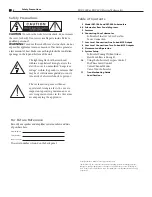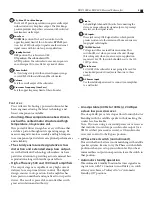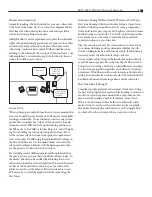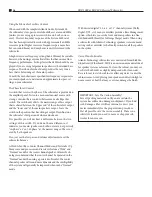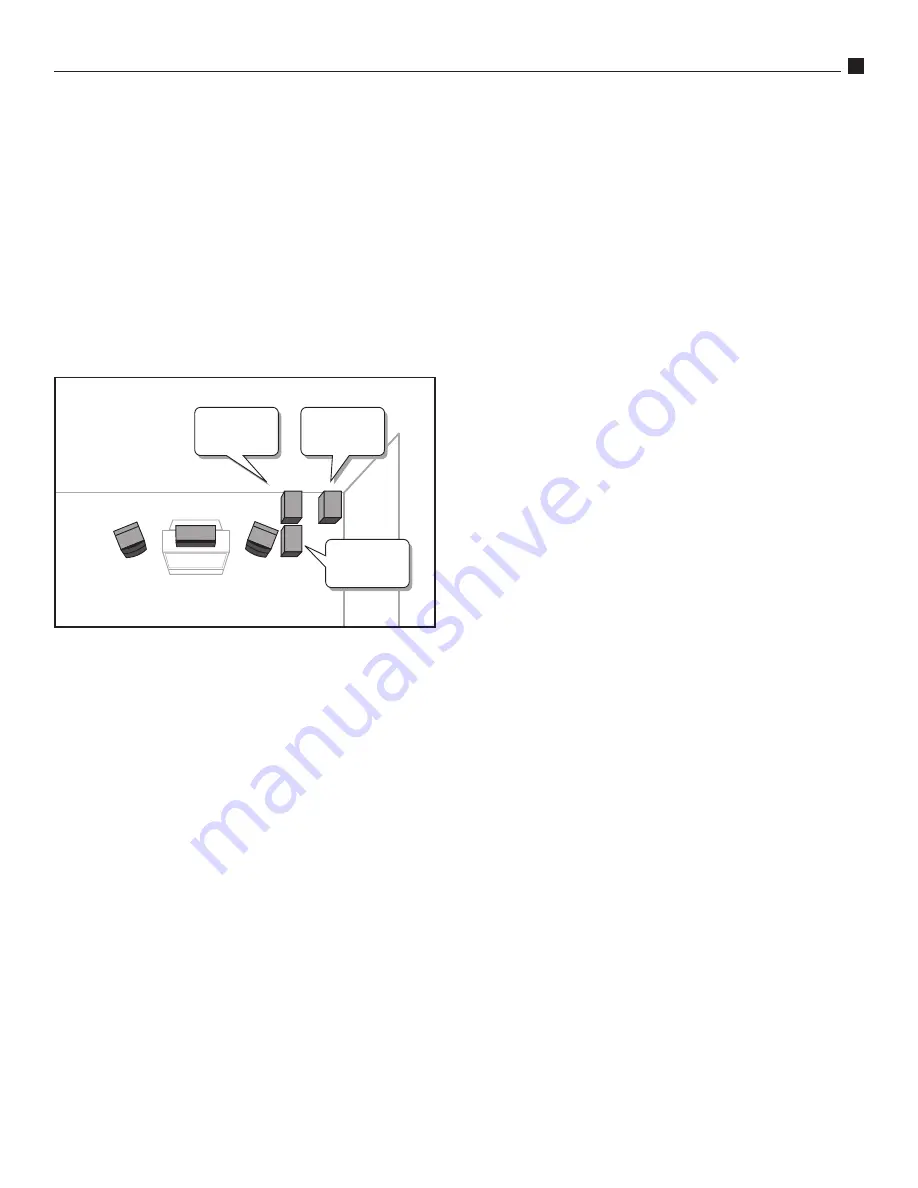
1. Start here.
3. Move away
from wall for
less bass.
2. Move to
corner for
more bass.
Placement and Operation
Generally speaking, the best location for your new subwoofer
is the front of the room, close to a corner (see diagram below).
The closer the subwoofer is placed to a wall and especially a
corner, the stronger the bass response.
A Helpful Hint: A useful experiment is to place the subwoofer
right at the prime listening position. Move your couch or chair
out of the way and put the sub in its place. Then play music
with strong, consistent bass content. Walk around the room,
listening to the subwoofer’s bass output. When you locate a site
with ample bass, you’ve found a good site for the sub. In most
rooms, this will be near a corner.
System Set Up
When setting up a complete home theater, we recommend that
you use a Sound Pressure Level meter. SPL meters are available
starting at around $35. To use this meter, turn on your system,
put the Processor/Receiver in the Test Mode and set its main
volume control to 0dB. Sit in the prime listening position, set
the SPL meter to the 70dB scale, Slow Response, and C Weight-
ing. Now, holding the meter pointed up and in front of you,
let the system cycle its test tone from speaker to speaker and
set every speaker to 75dB using the individual level settings in
the Processor/Receiver. Use the main Volume control on the
subwoofer to achieve a balance with the main speakers, then
use the processor to fine tune the bass output.
Try watching several different movies and keep in mind that
the goal is to have a system that sounds like you’re actually “in
the movie.” Should you have difficulty achieving the correct
subwoofer volume this way or should your Processor/Receiver
not have a subwoofer level control, just use the subwoofer's
volume control to set the balance. If you decide not to use an
SPL meter, try to set all the speaker levels the same using the
Test Tones.
Subwoofer Tuning Without Aides (SPL Meter or Test Tones)
Start your listening with the subwoofer Lowpass control set at
80Hz (or in the Bypass position if you’re using a component
with a built-in low-pass output). Set the phase switch to normal
and the Volume control to the "12 o'clock" position. If possible,
have another person be ready to adjust the subwoofer level
control in response to your direction.
Play some music you know has consistent bass content. From
your normal listening position, determine whether the sub-
woofer is filling in the bass of the music evenly. If adjustment is
necessary, adjust the subwoofer level up or down.
Once you have achieved a good balance between the subwoof-
er and the main speakers, have someone flip the Phase switch
between its two settings. Listen for a subtle difference in output.
Use the stronger position, regardless of whether it is "in phase"
or reversed. If the Phase switch results in increased output after
setting the subwoofer level control, readjust the level control for
best balance between the main speakers and the subwoofer.
How Much Bass Is Enough?
Sometimes people prefer more bass impact for movies. Using
the bass level you prefer for movies while listening to music can
result in overpowering and unnatural bass reproduction. You
may need to determine a "movie" level and a "music" level.
If this is the first time you have balanced a subwoofer with a
main system, it's easy to set the subwoofer to play too loudly.
The Home Theater Police will not arrest you. You might find
you back off on the sub output after a week or two of use.
9
SBT-1000 & SBT-500 Powered Subwoofers


